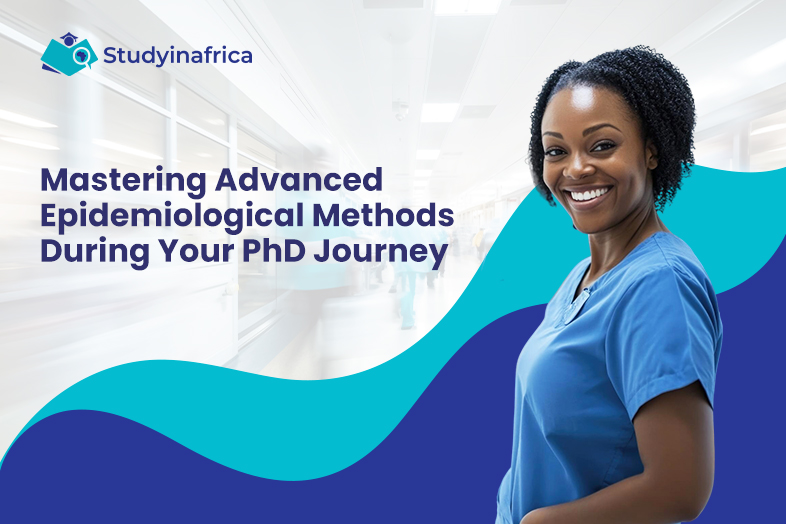
Blog Summary
As public health grows more complex and globally interconnected, the government demand for PhD researchers continues to rise. Advanced professionals are needed to guide policy, lead critical research, and design data-driven health interventions. Governments and NGOs are increasingly seeking individuals with doctoral-level expertise to address evolving public health challenges. This blog explores the value of PhD-level health researchers, the opportunities available for those pursuing this path, and how countries like Cameroon are emerging as key players in public health education and innovation.
Introduction
The 21st-century healthcare landscape is shaped by rapid global changes—emerging diseases, urbanization, health inequality, and climate-driven health threats. These multifaceted challenges demand not just frontline healthcare workers but also individuals who can research, evaluate, and guide large-scale responses. This has led to a noticeable rise in the demand for experts with advanced academic training in public health.
Governments and non-governmental organizations (NGOs) now actively recruit PhD-trained researchers who can generate evidence, influence public health strategies, and improve program outcomes. This trend is not limited to high-income countries. Many developing nations, including Cameroon, are recognizing the need to build research capacity to meet their public health goals.
The Role of PhD Researchers in Public Health
Shaping Health Policy Through Research
Informed decision-making is central to effective governance. PhD researchers contribute deep analytical insight and data interpretation, helping governments design policies that respond to actual health needs. Whether it’s assessing vaccine coverage, studying disease trends, or evaluating health infrastructure, these professionals provide the solid evidence base that policymakers need.
This kind of expertise also plays a crucial role in navigating public health emergencies, such as COVID-19 or outbreaks of regional diseases. Having highly trained researchers helps governments avoid reactive measures and instead take proactive, strategic actions.
Recent data from the World Health Organization supports this impact: countries that increased public health research funding by just 1% of their GDP experienced up to a 12% improvement in population health outcomes over a ten-year period (2010–2020). This underscores how investing in research—and the professionals who lead it—translates into tangible health improvements for communities.
Enhancing NGO Project Effectiveness
NGOs often operate in resource-limited settings, where every intervention must be cost-effective and impactful. Researchers with doctoral-level training help organizations evaluate community needs, design tailored health programs, and monitor long-term outcomes. Their work supports data-driven decision-making, enabling NGOs to justify funding and improve accountability.
From maternal health to mental health services, NGOs with strong research capabilities can demonstrate greater success in reaching underserved populations and measuring progress over time.
The Value of Earning a PhD in Public Health
Pursuing a PhD in public health is not merely an academic exercise—it’s a commitment to driving change through knowledge. These programs train individuals to become independent researchers capable of designing and conducting complex studies, analyzing large datasets, and contributing new insights to global health challenges.
Program Duration and Structure
Typically, the duration of a PhD in public health ranges from three to five years. Students begin with coursework in research methods, health systems, and policy studies, followed by a major research project that culminates in a dissertation. This timeline can vary slightly depending on institutional requirements and the nature of the research.
Admission Pathways
PhD programs usually require a relevant master’s degree, research experience, and a proposal outlining the applicant’s intended research focus. Strong academic performance and a clear motivation to contribute to public health are also key admissions factors. Some institutions consider applicants with professional experience in healthcare, even if they come from non-academic backgrounds.
Cameroon: A Growing Destination for Public Health Study
Cameroon has become an emerging center for advanced education in West and Central Africa. With increasing investments in its higher education sector, it is positioning itself as a destination for regional and international students seeking impactful academic pathways.
Academic Strength and Local Relevance
Several universities in Cameroon offer public health programs aligned with the nation’s development goals. These institutions are increasingly focused on building research capacity that addresses local health issues such as malaria, HIV, and maternal health.
Students who choose to study in Cameroon benefit from programs that combine global research methodologies with locally relevant fieldwork. The proximity to real-world health challenges makes the academic experience both practical and meaningful.
Growth of Accredited Programs
A number of accredited universities in Cameroon now offer doctoral programs in public health. These programs meet international academic standards while providing affordable tuition and access to public health networks across Africa. They also offer collaborative opportunities with NGOs and health ministries, allowing students to integrate research with community service.
Career Opportunities for PhD Graduates
With a doctorate in public health, graduates can pursue diverse roles that extend beyond academia. They may join ministries of health as policy advisors, lead monitoring and evaluation departments at NGOs, or take on consultancy roles with organizations like WHO and UNICEF. Others may return to universities as faculty members, helping expand research and teaching capacities.
Regardless of the path chosen, the career is deeply impactful. It offers the opportunity to influence systems, not just individual patient outcomes.
Conclusion
In a world where public health challenges are increasingly interconnected and data-driven, PhD-level researchers have never been more important. Their expertise is crucial in shaping effective health policies, designing strategic interventions, and improving accountability in both governmental and non-governmental sectors.
For students passionate about public health, now is a great time to explore doctoral-level education. With structured programs, growing institutional support, and emerging destinations like Cameroon that offer relevant, affordable education, pursuing a PhD is both attainable and rewarding. Whether your goal is academic, policy-driven, or humanitarian, this path opens doors to lasting impact.
FAQs


